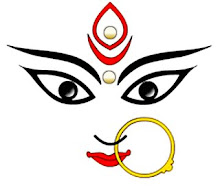

Kamakshi Amman Temple is a famous Hindu temple dedicated to Goddess Kamakshi a divine form of Parvati. It is located in the historic city Kanchipuram, near Chennai, India and is popularly associated with Adi Sankaracharya, one of the greatest Hindu saints. Along with Madurai Meenakshi, Thiruvanaikaval Akilandeswari, Vishalakshi Varanasi, Kamakshi is an important part of worship of Parvati.
It is interesting to note that the main deity is seated in a majestic Padmasana posture, an yogic posture signifying peace and prosperity, instead of the traditional standing pose in most other temples of Parvati. The goddess holds a sugarcane bow and lotus and parrot in the lower two of her arms (Many of the Hindu god forms generally have four arms) and has the two divine instruments Pasa and Angusa in her upper two arms. It is interesting to note that there are no traditional Parvati or Shakthi shrines in the city of Kanchipuram, apart from this temple, which is unusual in a traditional city that has hundreds of traditional temples.
There are various legends attributed to it. One of them according to Kamkshivilasa is that the Goddess had to absorb all the other shakthi forms to give boon to Manmatha (the Hindu god of fertility and love). Another legend attributes it to the Raja Rajeswari pose of the deity that signifies an absolute control over the land under its control, leaving no other forms of Shakthi.
Legend has it that Kamakshi offered worship to a Shivalingam made out of sand, under a mango tree and gained Shiva's hand in marriage.
Kamakshi and Adi Sankaracharya
Adi Sankaracharya is significantly associated in the rich history of the temple. Like many other ancient goddesses, the form of Kamakshi was less benign than the current form. There used to be various forms of animal and human sacrifices in ancient Shakthi temples and it is believed that Adi Sankaracharya led to the more peaceful representation of the goddess by placing a divine Chakra before it. And the goddess agreed to show her benign side in the temple, while the forms of Shakthi outside Kanchipuram still had more angrier forms of Shakthi. There is no verifiable historical proof for this, though it is a part of the local folklore. Symbolic of this, during the festivals when the processional deity is taken for a procession around the temple streets, it takes leave from Sankaracharya, at his shrine in the inner corridor. It is also believed that Sankaracharya defeated Buddhist and other philosophers in this place, sparking a revival for Hinduism.























No comments:
Post a Comment